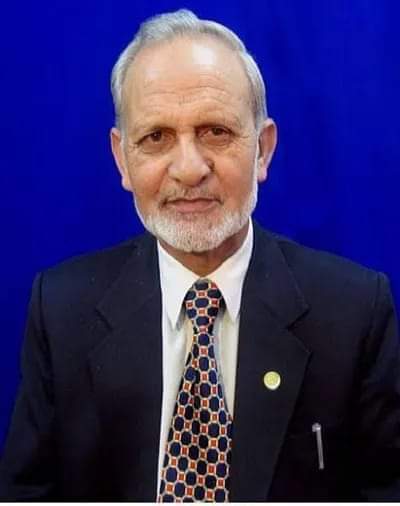The academic and intellectual community of Kashmir mourns the demise of an exceptional educationist and humble soul, Prof Abdul Wahid Qureshi, who passed away following a sudden cardiac arrest.
An alumnus of Aligarh Muslim University (AMU), where he did his PhD in Economics, Prof. Qureshi held several prominent positions, including serving as the Vice Chancellor of the University of Kashmir and later as the first Vice Chancellor of the Central University of Kashmir. His tenure at these institutions marked significant progress in their academic and administrative frameworks.
After completing his three-year tenure at the University of Kashmir as Vice Chancellor, Prof. Wahid joined the Central University of Kashmir as its first Vice Chancellor in 2009 and laid the foundation for its growth. Earlier, he served as Dean of Social Sciences, Dean of Academics, and Coordinator of the then AVRC, presently EMMRC, University of Kashmir.
“Prof. Qureshi played a significant role in the establishment of the then AVRC (now EMRC) as a Coordinator and later as Vice Chancellor. He was one of the most gentle, noble and capable academic administrators whose contribution to Kashmir University as a whole can never be undermined,” says Prof. Shahid Rasool, Dean Academic Affairs, Central University of Kashmir and Former Director EMRC, University of Kashmir. “Simple living and high thinking” was his hallmark that touched thousands of lives in one way or the other, adds Dr. Rasool.
Prof. Noor Ahmad Baba, the noted academician and political scientist, remembers Prof. Wahid as a pioneering figure in the education system, saying his role in shaping institutions like the University of Kashmir and the Central University of Kashmir will remain a lasting legacy, as it has profoundly impacted higher education in Kashmir and will continue to inspire future generations.
During his tenure as VC of KU, I had the privilege of working with this noble soul as his Media Advisor, the role he chose for me in addition to my job as then Editor KU Publications and Asstt. Dean, Student Welfare Department. I always found him humble and at peace with himself. He had a great balance in life. I found him neither too excited about anything nor depressed in any situation, but always calm and composed towards life and matters associated with life. He perhaps, in the real sense of the word, represented the famous poet Sahir Ludhianvi’s verse:
“Gum aur khushi ke beech farq na mehsoos ho jahaan.”
(A point where you don’t feel the difference between happiness and grief.)
He had a very positive outlook on life, and with his great sense of humour, handled even the most difficult situations with utmost ease. I remember he would just have a cursory look at the press clippings sent to him each day under my signature and not get impacted at all with a good or poor coverage of an event he chaired or was the chief guest at. But of course, when some newspaper would point towards the loopholes in the functioning of the University in some particular area, and if he was convinced about the authenticity of the coverage, he would never try to hush up things and instead call a meeting of the concerned Heads or the Deans and see how things could be rectified.
During my close association with him as his Media Advisor, I felt that he was fond of autonomy for higher educational institutions and longed for it. He believed that the benefits of such autonomy must percolate down to the departments and other units of the varsities and the colleges.
The way he was loved and respected by his students and faculty scholars is evident from the way people have poured their hearts out at his sad demise. “My mentor, my teacher, you had been my inspiration and guide during university days,” writes Ali Shaida, a prominent poet of our times. Maqsood Uri, a noted broadcaster, describes him as “his mentor and guide with great qualities of head and heart.” “His honesty, nobility and humility have had a profound influence on my professional journey,” is how Shahid Ali Khan, Cultural Officer KU, remembers his mentor.
The passing of Prof. Abdul Wahid Qureshi at the age of 79 marks the end of an era in Kashmir’s academic landscape. Hailing from the serene and picturesque region of Karnah in north Kashmir’s Kupwara district, Prof. Qureshi had dedicated his life to the pursuit of knowledge and the advancement of education in Kashmir. He spent his later years in the Kani Taar area of Sadabal, Srinagar, where, like his native place, he was widely respected by the inhabitants of the area.
As a scholar, educator, and administrator, he left an indelible mark on institutions like the University of Kashmir and the Central University of Kashmir, where he played a key role in shaping their growth and prominence. His tenure as Vice Chancellor at both institutions was characterised by reforms and an unwavering commitment to quality education. His demise leaves a void that will be felt across the educational landscape of Jammu and Kashmir, and the country as a whole. But his legacy will undoubtedly inspire generations of scholars, educators, and administrators for years to come. His contributions, both as an economist and as a leader, will remain a guiding light for those who continue his mission of fostering education and progress in the region.
Rest in peace, Sir.
